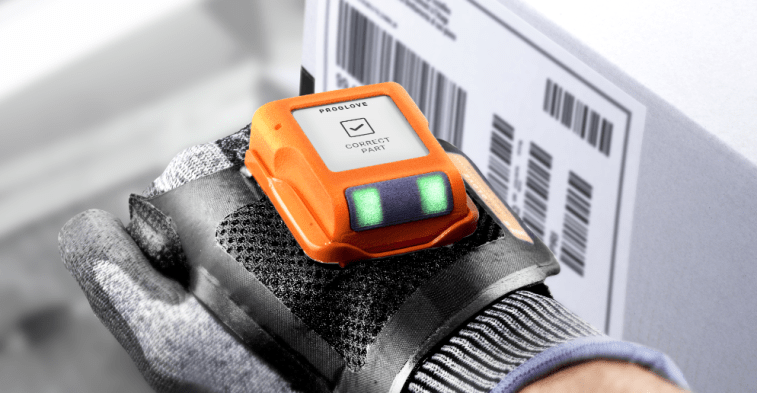LEAVE IT TO TECHNOLOGY TO MEET MODERN CHALLENGES: PART I
To be honest, incorporating more technology into business as usual for logistics, supply chain and manufacturing entities pre-dates the first confirmed COVID-19 case in the U.S. in January 2020. But it did take the global pandemic to propel many in those industries to move unrealized digital transformation initiatives to their front burners.
In light of Industry 4.0, which places a high value on robotics, clean technology, renewable energy and transforming traditional factories into smart ones using the Internet of Things (IoT) and cloud computing, InfinityQS International announced the findings of its 2021 Customer Satisfaction Survey on June 1.
The report from the Fairfax, Virginia-based authority on data-driven enterprise quality revealed that more than half of manufacturers now have their sights set on digital transformation to address concerns brought about by the COVID-19 pandemic. Behold:
-52 percent of respondents reported they are currently exploring or already adopting digital transformation initiatives to enhance operational performance.
-24 percent cited advanced analytics as their top technology priority.
“The pandemic exposed significant and often widespread operational weaknesses within incumbent manufacturing environments,” said Jason Chester, director of Global Channel Programs at InfinityQS. “It brought into sharp relief where legacy systems and outdated processes exacerbated the problems that manufacturers faced, alongside new challenges such as the rapid shift to remote work and supply chain disruption.”
Digital transformation is the key to addressing these new challenges, according to Chester. “Data, for example, is a great way for manufacturers to increase visibility into their operations as it can provide important insights into each stage of the production process. These insights can then be leveraged to make more informed and tactical decisions to secure long-term resilience and growth.”
In addition to advanced analytics, the other most popular technologies on the priority list for respondents included the Industrial Internet of Things (IIoT) and cloud computing. InfinityQS notes that either technology supports anytime, anywhere access to real-time data for proactive decision-making, enabling manufacturers to maximize performance, respond to fluctuations in demand, ensure flexible operations and even build resilience for future “black-swan” events—all while maintaining high levels of product quality and safety.
“For manufacturers to stay ahead of competition and remain at the top of their industry, they need to constantly adapt to their environment by making tactical digital investments,” Chester says. “It is great to see the majority are rebounding from the pandemic and embracing digital transformation to increase their agility and maintain competitive edge. Companies that do so are better equipped to improve their operations at a faster speed and even anticipate changes before they occur.”
A clue that an impactful industry change was on the way happened during the March 2020 MODEX show in Atlanta, where attendees were warned they may have been exposed to someone with COVID-19. Folks can be forgiven if they were too preoccupied with personal health to consider the findings in the annual Materials Handling Industry (MHI) Report that was released during MODEX. According to the report (which you can read more about in our Industry Expertise column):
-67 percent of survey respondents said they believed robotics had the power to disrupt their industry and offer a competitive advantage for their organization.
-39 percent of surveyed companies said they’d adopted robotics and automation.
-73 percent of those surveyed said they plan to add more robotics or start implementing robotics in the next five years.
For a look ahead of the curve, Global Trade identified industry players who confronted a recent challenge with the help of technological partners. Our case studies are arranged by the categories Global Trade covers on the regular, from 3PLs and e-commerce to intermodal and air cargo logistics. Read on for part one.
3PL
Company: KSP Fulfillment of Fridley, Minnesota
Challenge: Rapid growth putting pressure on order fulfillment
Problem Solver: Softeon of Reston, Virginia
Solution: Cloud-based warehouse management system (WMS)
Founded in 2012 and headquartered near Minneapolis, KSP offers a broad mix of 3PL services to multiple industries, including medical, health & beauty, education, agriculture and pet care. The Verified Veteran Owned Business has realized rapid growth, with revenues jumping 296% in 2020. That is, of course, the goal, but …
Why is there always a “but?”
The mountain of increased orders drove the need for additional space, and KSP is set to complete construction on a new 182,000-square-foot facility in November. However, the KSP brass also realized they needed more than additional real estate.
“The company determined it needed a new WMS with the ability to scale, more advanced features and a better platform for continuous improvement,” explains Dennis Nicholson, vice president, Business Development at Softeon. “KSP selected Softeon as its WMS provider to help power execution of their aggressive strategy, making their decision to move to Softeon in less than two months.”
KSP was ready to move even sooner, to hear CEO Rob Walters tell it. “It was obvious in the early stages of our WMS vetting process that Softeon was going to be the right fit for our short and long-term business goals,” he says. “It was incredibly important that we chose the right strategic partners to ultimately support our customers’ needs. Softeon offers a unique combination of rich WMS functionality, robust support for 3PLs and a collaborative partnership that matches well with our culture.”
It’s not just smaller company cultures that Softeon meshes with, having also provided a WMS solution to Germany’s DB Schenker, which is, of course, one of the world’s largest providers of freight forwarding and logistics services
AIR CARGO LOGISTICS
Company: American Airlines Cargo of Fort Worth, Texas
Challenge: Expanding temperature-controlled shipments across the entire mainline fleet
Problem Solvers: CSafe Global of Dayton, Ohio, and CargoSense of Reston, Virginia
Solution: State-of-the-art packaging and temperature sensors
One lesson American Airlines Cargo learned from the pandemic was that operating one of the largest cargo networks in the world made one no more prepared to handle the huge demand for distributing temperature-critical vaccines, pharmaceuticals and other life science products than Uncle Eddie’s Crop Duster Inc.
Though the new normal is getting more normal currently (knock on Formica), the demand for temperature-controlled cargo solutions is not going away. That even newer normal propelled American to enter into a number of tests and trials in partnership with CSafe Global and CargoSense. The result: All of American’s aircraft offered ideal environments for passive temperature-sensitive shipments thanks to CSafe’s industry-leading packaging and CargoSense’s Temperature Loggers.
The even more amazing result: American’s ExpediteTC solution, which was founded in 2009 to provide active and passive shipping solutions as well as a global network of temperature-controlled facilities, can now nearly double its capacity. The airline has now extended its cold-chain solution network to 30 new stations, including in-demand cities such as Memphis, Pittsburgh and Cincinnati.
“When it comes to cold chain shipments, reliability is crucial for our customers,” explains Roger Samways, vice president, Commercial for American Airlines Cargo. “By expanding our offering of temperature-critical shipping on all mainline flights, we are able to provide our customers with access to more than 180 markets, marking the largest cold-chain network in our history.”
During the trials, sensors monitored internal package temperatures while aircraft operated in various climates. Results proved that temperatures of each package stayed constant, despite changing conditions during transit, according to the partnership.
“We are excited the pharmaceutical industry can now leverage American’s full fleet at a time that is critical for all of us,” says CargoSense CEO Rich Kilmer.
Added Tom Weir, CSafe Global’s chief operating officer: “It was a privilege to work with American to conduct these trials and leverage our innovative thermal shipping solution technologies to ensure even more temperature-critical shipments can travel effectively. Many sensitive, often life-saving goods travel the world thanks to effective cold-chain networks, and we are proud to play a part in that alongside American Airlines.”
BANKING/FINANCE
Company: Old Dominion Freight Line of Thomasville, North Carolina
Challenge: Streamline payments to improve satisfaction among 10,500+ drivers
Problem Solver: Relay Payments of Atlanta, Georgia
Solution: Instant electronic payments
Motor carrier and industry leader Old Dominion provides regional, inter-regional, and national services that include expedited transportation through an expansive network of service centers throughout the continental U.S. as well less-than-truckload (LTL), container drayage, truckload brokerage and supply-chain consulting across North America.
However, Old Dominion lived up to the . . . ahem . . . “Old” part of its name by, like many of its peers, relying on cash and checks to conduct business. With manual payment processes creating a sub-optimal experience for customers, OD turned to Relay Payments, which recently received a $43 million infusion from venture capitalists who share the fintech company’s vision of building an electronic payment network in the transportation, logistics and supply-chain industries.
“We strive to deliver best-in-class customer service and are always looking at ways technology can improve our offerings,” explained Todd Polen, vice president, Pricing Services, at Old Dominion. “Working with Relay Payments has allowed us to remove tedious and manual steps throughout the payment process and modernize the way we do business with our customers.”
Relay’s partnership with OD’s accounting, pricing and operations teams is paying dividends, thanks to the development of unique application leveraging data integrations and custom payment workflows for each department’s specific needs. “We have entrusted Relay to process millions of dollars in volume annually,” Polen notes, “and we’ve already been able to realize millions in savings through data integration, digitalization of receipts and simplified reimbursements. On top of it all, our customers are happier than ever which is the most important to us.”
“Our goal was to design an end-to-end solution which eliminated the use of paper-based payments and introduced operational efficiencies and increased revenue for the organization,” says Relay co-founder and President Spencer Barkoff. “We’re excited to continue working together to change the industry and keep America’s supply chain running during a period of immense challenge.”
E-COMMERCE
Company: Hermes Fulfillment of Hamburg, Germany
Challenge: Incorporate state-of-the-art technology to legacy warehouse management systems
Problem Solver: ProGlove of Munich, Germany, and Chicago, Illinois, and Ivanti Wavelink of Salt Lake City, Utah
Solution: Wearable barcode scanners and backend digital systems
Hermes Fulfilment handles the entire shipping process—including customer orders, warehousing and returns—for parent company the Otto Group’s retail companies. Besides multiple locations in Germany, Hermes has logistics, e-commerce and distribution facilities across all of Europe.
After identifying the need to upgrade technologically, Hermes officials sought an “out-of-the-box” solution: 150 of ProGlove’s wearable MARK Display barcode scanners that are married with Ivanti Wavelink’s Velocity backend/warehouse management systems.
This combo platter allows for easy integration of Telnet and browser-based applications to communicate and deliver crucial information to and from workers’ rugged mobile computers and wearable devices.
“ProGlove’s MARK Display is a giant leap forward in barcode scanning,” says Simon Storey, Ivanti’s Global VP of Strategic Alliances. “Their devices come with a unique form factor that is tailored to meet the needs of warehouse shop floor workers superbly.”
His company’s Velocity platform helps improve accuracy and efficiency without modifying or replacing legacy backend systems, all the while maintaining and improving worker productivity. This helps reduce picking errors, decrease downtime and increase productivity without frontline workers needing additional training as they continue to work with the tools with which they are familiar.
“The cost, risk and time associated with writing new mobile applications to keep up with modern mobile operating systems just isn’t feasible,” Storey explains. “We make it easy for their customers to deploy next-generation mobility, minimizing the risks and dependence on IT resources.”
“Ivanti’s Velocity set of solutions is a mission critical engine to boost the digitization of the shop floor,” remarks Charlie Grieco, ProGlove’s chief revenue officer. “While many organizations recognize the need for more flexibility and adaptability, they cannot just shake off the legacy systems they have in place. Ivanti resolves this issue so that businesses can change gears and accelerate to warp speed in no time.”





Leave a Reply